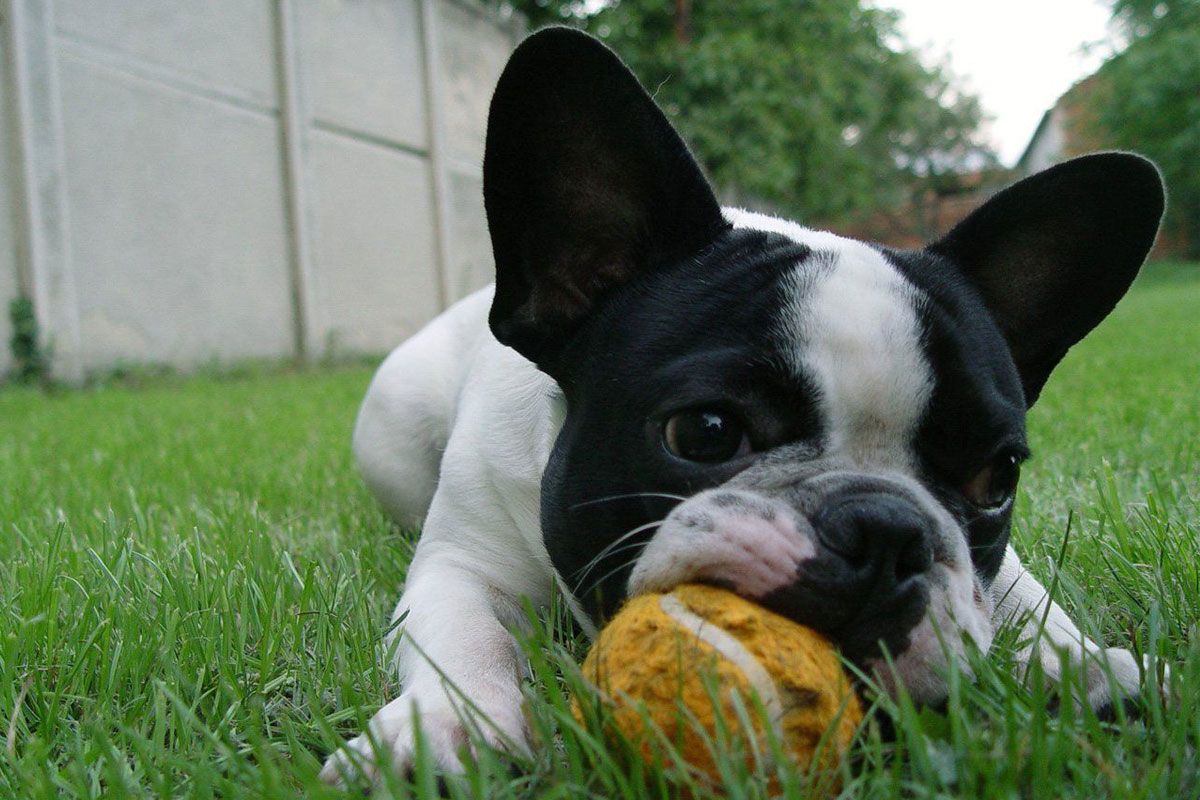Many dogs still have energy left even after long walks. Physical activity helps the body, but it doesn’t work the mind. Adding structured brain games for dogs trains focus, improves impulse control, and builds better problem-solving skills.
At KC Dawgz, we use mental exercises to strengthen communication between dogs and their owners. These games teach dogs to think through challenges, stay calm under pressure, and respond with purpose instead of pure energy.
Best Brain Games for Dogs That Build Focus and Problem-Solving Skills
Hide and Seek Game
Hide and seek strengthens recall and concentration. Start by having your dog stay while you hide behind a door or piece of furniture. Call their name once and praise them when they find you. Over time, increase the difficulty by hiding in new locations or introducing a scent cue with a hidden treat.
This simple activity works multiple skills at once: patience, obedience, and focus. It’s also a great bonding exercise for both of you.
Pro Tip: Reward your dog immediately when they locate you or the hidden object. Consistent timing helps them connect the action to the reward.
Odor Work for Mental Stimulation
Scent training is one of the most powerful ways to challenge your dog’s brain. You can start small with household scents or treats, then work up to specific odors like birch or clove.
To begin, hide a cotton ball with a small drop of essential oil or the scent of your dog’s favorite treat. Encourage your dog to “find it,” rewarding them for each successful discovery. This form of odor work mimics professional detection training and keeps dogs mentally sharp.
Key Takeaway: Scent-based brain games for dogs help develop calm focus. The goal isn’t speed, but accuracy and patience.
Our trainers can help you turn simple brain games into powerful tools for better focus and behavior. Contact KC Dawgz today for a free consultation.
DIY Training Games Using Household Items
Dogs love to explore and use their paws and noses to solve problems. One easy indoor activity is the “box game.” Place treats inside a cardboard box filled with crumpled paper or small toys. Your dog must dig and search to find each piece.
Other DIY ideas include:
- Hiding kibble in a muffin tin under tennis balls.
- Creating a “treat trail” around the house to practice search cues.
- Using old towels to wrap up treats for an unrolling challenge.
These activities keep your dog engaged and prevent boredom that often leads to destructive behavior.
Puzzle Toys and Interactive Feeders
Puzzle toys are excellent tools for daily enrichment. They encourage your dog to manipulate levers, slide panels, or roll dispensers to release treats. Rotating between different puzzle toys every few days keeps them exciting and effective.
Dogs that eat too quickly can also benefit from food puzzles. Replacing a traditional food bowl with an interactive feeder turns mealtime into a thinking challenge.
Pro Tip: Avoid using the same puzzle toy every day. Varying the challenge prevents frustration and keeps your dog interested.
Setting the Right Routine for Brain Games
Just like too much exercise can tire a dog’s body, excessive brain games can cause mental fatigue. Set a consistent routine; 10 to 15 minutes of focused play once or twice daily is ideal for most dogs.
Be mindful of the expectations you set. If your dog becomes used to intense daily activities, it may lead to restlessness when you can’t keep up that pace.
Key Takeaway: Balance is the key. Consistent, moderate mental stimulation keeps your dog sharp and content.
Start Training Smarter, Not Harder
Brain games for dogs are more than fun; they’re essential for building a confident, well-balanced companion. The right mix of scent work, puzzles, and problem-solving keeps your dog’s mind healthy and your relationship stronger.
Need expert help with dog training and behavior? Contact KC Dawgz for a free consultation and learn how to make playtime smarter, safer, and more effective.




